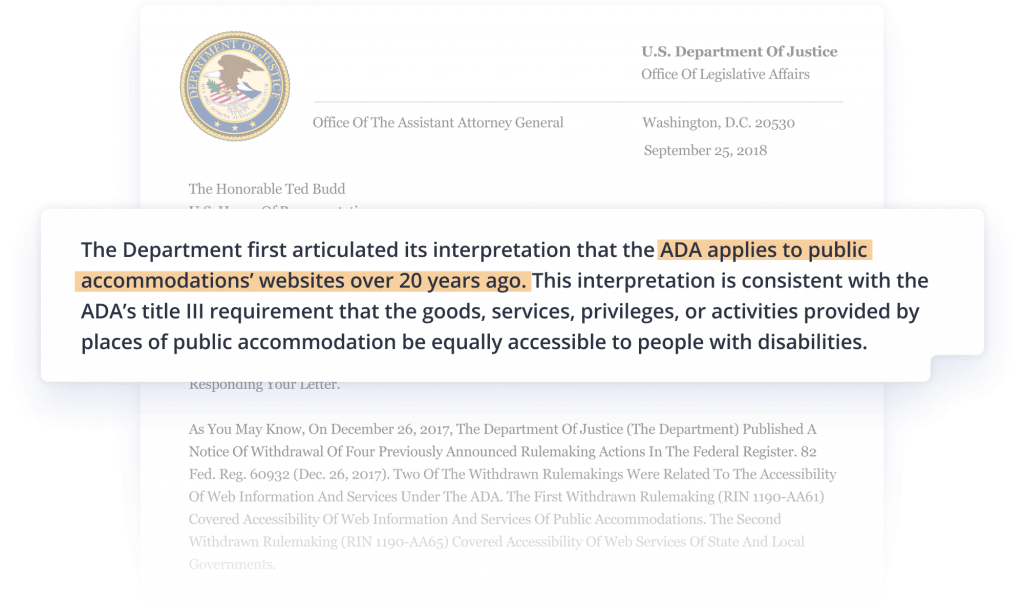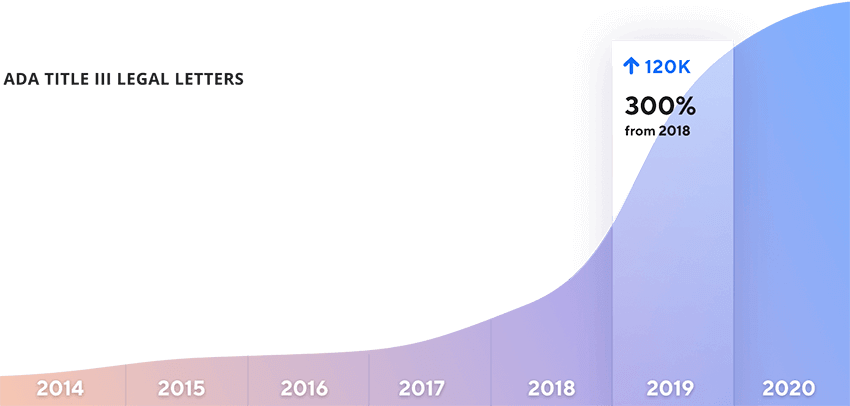All about Accessibility Compliance and Legislation
%
Increase in lawsuits since 2018
%
Of websites sued more than once
%
Of websites are inaccessible
%
Of the population has a disability
What is the web accessibility legislation?
Due to the increased use of the Internet, many countries have incorporated web accessibility into existing civil rights legislation that protects people with disabilities or created new ones.
This includes the ADA, AODA, EEA, and many more. Most countries have adopted the WCAG 2.1 AA, or Web Content Accessibility Guidelines, as standard for accessible websites and refer to them in settlements.
How does legislation impact my website?
In 2018, the DOJ clarified that websites are considered places of public accommodation and should therefore comply with the ADA Title III. US courts refer to WCAG 2.1 AA as the accessibility standard

Inaccessible websites are at risk of litigation

The exponential growth in web accessibility lawsuits has a widespread effect across industries, with small and medium businesses in the center of the storm.
Lawsuit numbers are estimated to continue to increase as the need to enable accessible digital experiences becomes more prominent.
Compliance is required by everyone
Web accessibility lawsuits have increased in almost every industry, targeting businesses of all sizes, and have even made headlines in high profile cases such as Dominos, Beyoncé, and Kylie Jenner.
The benefits of an accessible website
Avoid costly litigation
Mitigate the risk of lawsuits by complying with accessibility legislation
Boost brand perception
Showing that accessibility is important to you will enhance your reputation
Extend market reach
The spending power of people with disabilities is much more than $6 trillion
Making your website accessible to everybody is the right thing to do!
The internet is where everything happens. Can imagine your life without it? accessing what the internet has to offer should be a basic right for everybody, regardless of their abilities.
